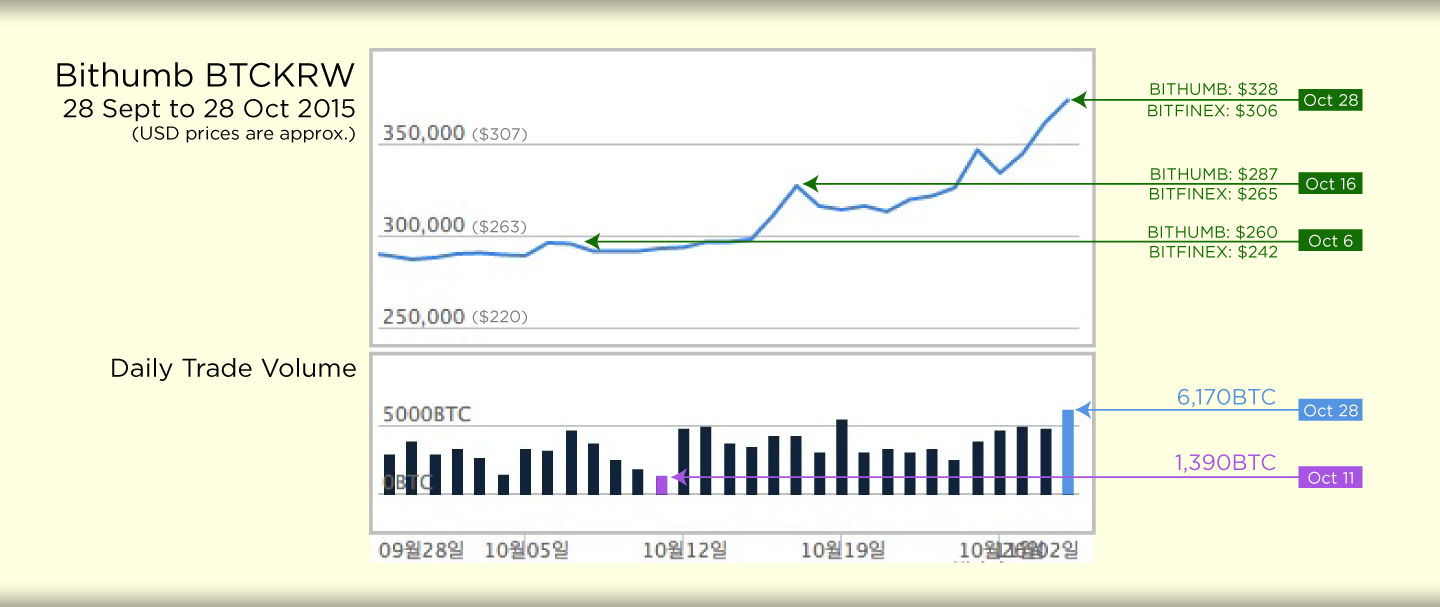Looking for bitcoin arbitrage opportunities read this

So I can simply buy bitcoin in Lithuania and sell back to Turkey via local exchange sites or localbitcoins with a profit. And I also increase the withdrawal limit to maximum. In the beginning I thought by doing this I may encounter some problems with my bank and government. Therefore, I have talked with my Turkish lawyers, and they informed me that I shouldn't have any problem doing this as long as I save all transactions and trading history.
Make it rain bro! Feel free to try out our arbitrage system and follow us for alerts http: Shouldn't be an issue unless one of the two countries has a negative stance over BTC. Another factor to consider if if cashing out to your bank account would incur taxes. I upvoted but I will put you on steemit blast edition trying to make it look like natural followers. I have proof you unfollowed me. So essentially it is arbitrage between the Turkish and Lithuanian currencies, using BTC to facilitate.
If this works then you need no permission to start doing it. I give you permission. Start with the ATM and build up from there. Better to apologize afterwards than to ask permission. I'm in India with family in New York. It operates without any central authority according to a mutually agreed upon set of code comprising the bitcoin protocol. Bitcoin contrasts with traditional fiat currencies, such as the dollar and euro, which are issued and regulated by a central authority such as a governmental body and constitute legal claims on their issuers.
For example, bank deposits are claims on the assets of banks and Federal Reserve notes such as dollar bills are technically claims on the assets of the Federal Reserve System. The entire history of bitcoin transactions is recorded on a public ledger known as the blockchain.
Proponents such as the Bitcoin Project assert that the bitcoin protocol can reduce the fees, time, and risk associated with transferring value in terms of traditional currencies.
For example, payments submitted over the U. Automated Clearing House ACH network still take one-to-two business days to settle compared to roughly ten minutes for bitcoin payments. Since its inception, bitcoin has become accepted for payment by a wide variety of businesses and nonprofit institutions.
Bitcoin-based start-ups and projects have proliferated. For instance, in March , Bank of America filed a patent for a system of executing wire transfers using cryptocurrency such as bitcoin exchanges to mediate between two sovereign currencies. Bitcoin-to-bitcoin transactions between digital wallets can be performed at a negligible cost relative to transaction amounts. However, unlike traditional currencies, bitcoin does not currently serve as a widely accepted unit of account in and of itself.
Therefore, most users seeking to make payments in bitcoin generally need to purchase it on third-party exchanges using traditional currency. After receiving bitcoin in a transaction, the user has the option of holding it with the expectation of using it in a subsequent transaction.
Therefore, the bitcoin payee may be better off exchanging the bitcoin for traditional currency which is more useful as a general unit of account. This phenomenon can be observed in practice since many large retailers, such as Dell, Microsoft, and Expedia, that accept payment in bitcoin never actually receive any bitcoin.
Rather, they utilize third parties who, for a fee, receive bitcoin from the customer and forward dollars to the retailer. The round-trip transaction from traditional currency to bitcoin and back see the diagram below , may entail potentially significant transaction fees and counterparty risk. In turn, these exchange-related frictions could lead to different bitcoin prices across exchanges. Bitcoins are strictly homogenous: Therefore, any price differences across major bitcoin exchanges should be promptly eliminated by arbitrageurs buying bitcoin where it is less expensive and selling it where it is more expensive, thus enforcing the law of one price.
However, the charts below show large differences between the prices of bitcoin-U. The average difference is positive, indicating that bitcoins bought on BTC-E consistently trade at a discount relative to those bought on either Bitfinex or Bitstamp. This discount averages about 2 percent and has at times been higher than 20 percent. Large, persistent deviations between pairs of identical assets are unusual in exchanges and, when they have occurred as for so-called Siamese-twin stocks , they typically have not constituted profitable arbitrage opportunities.
For bitcoin, an arbitrageur could, in theory, safely profit by buying bitcoin on BTC-E and then selling it or going short by first borrowing bitcoin and then selling it on either Bitstamp or Bitfinex. Transaction costs come in two forms: As shown in the price difference charts above, however, the bid-ask spread as a percent of BTC-E price in these exchanges is negligible relative to the typical price difference, and thus does not likely impede arbitrage significantly.
Other fees, however, represent more substantial barriers. BTC-E, for example, charges a 0. These fees reduce the profits from arbitrage, and may explain the observed price differences. Bitcoin arbitrage opportunities across exchanges may also pose two risks: In fact, bitcoin prices are volatile; the intraday volatility of the bitcoin price on BTC-E often exceeds the average price difference between it and Bitfinex see chart below.
Therefore, delays in executing trades imply that the price difference can shrink or even revert before an arbitrageur can exploit it. The most significant delay is in the transfer of U. A trader wishing to execute this trade by transferring dollars to BTC-E faces significant risk of price changes over that period.